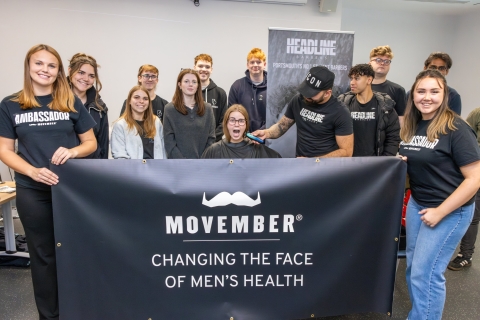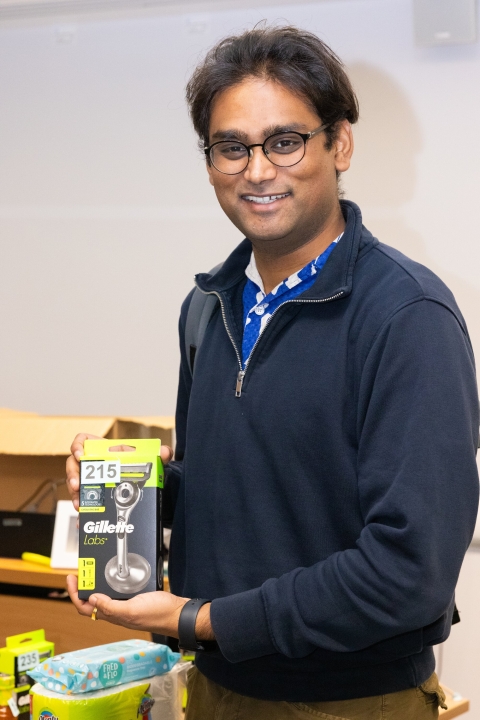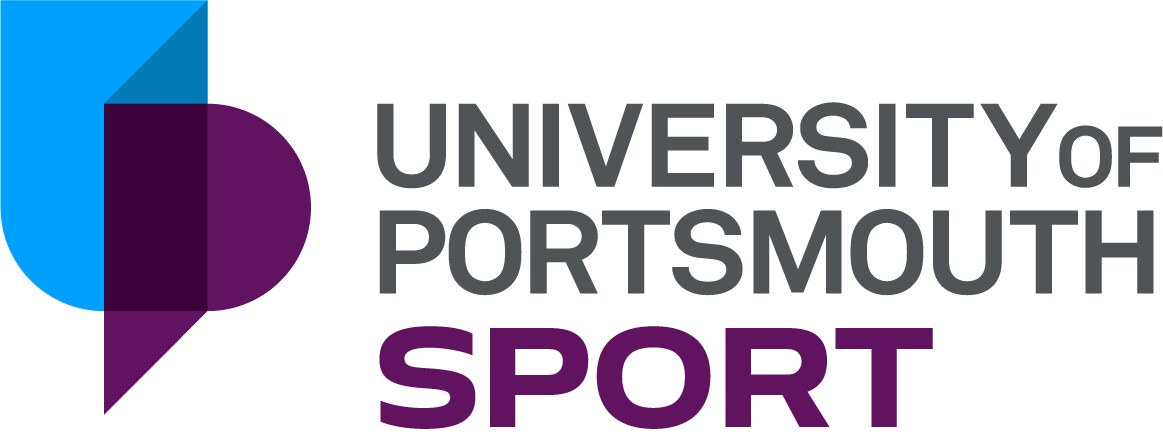

Team UOPs contribution helps men’s health initiatives to improve the state of Men’s Health in the UK
We’re delighted to announce that in the last 10 years the University of Portsmouth has raised over £100,000 for the Movember Foundation. As the leading global charity for men’s health, Movember shines a spotlight on some of the biggest challenges men face today: mental health and suicide prevention, prostate cancer, and testicular cancer.
Since 2003, Movember has funded over 1,250 health projects worldwide, challenging outdated perceptions and transforming the way health services support men. Every moustache grown, every kilometre moved, and every pound donated contributes to a life-saving movement that encourages men to speak up, get checked, and stay connected.
Key developments in the UK
Men’s mental health and social connection initiatives include a range of projects that look to improve social connection and mental health. One project, ‘Gamers vs Depression’, based in the UK, has used the online gaming community to improve social support and mental health literacy in teenage boys.
Messaging and media formats have been tested and developed, aimed at young men (aged 16-25) to shift harmful masculinity narratives. While not funded by Movember itself, a Mayor of London campaign aims to help reframe harmful narratives by saying maaate to a mate.
In sport, ‘Ahead of the Game’ is a community sport-based mental health programme that aims to boost mental fitness for those diagnosed with cancer and their supporters. While investments have also been made in the e-sports world to create safe environments for gamers, partnering with BLAST.
Prostate cancer research has also been funded through Movember, with King's College London receiving significant funding to turn patient insights into clinical practice.
In summary, £100k investments in the UK have translated into:
-
£100k–£200k grants funding targeted research tools
-
Collaborative multimillion-pound projects involving UK partners in mental health and prostate care
-
Seed funding for digital tools and app development, aiding fathers' mental well-being and prostate cancer support
You can help, though. If you spot a friend whose behaviour is out of character, it's important to check in with them - it might just save their life.
Spot the signs - Save a Bro

2025 fundraising so far...
We’re not done yet, though; we are aiming to raise £18,000 this year to further boost projects in the UK and globally. Over the last 10 years’ at the time of writing our fundraising total is £100,697.01 with more exciting events and fundraising efforts coming over the next two weeks.
Our current total is £3,497, 20% of the way to our target.
You can still support our efforts in raising valuable funds for men’s health. Our highest club fundraisers so far are:
Our incredible individual fundraisers are also raising huge amounts, with the following leaders:
Donate now for Men’s Health
Donate to one of our fantastic individuals or clubs, simply select their details form the leaderboard:
Focusing on male student health
Research by the National Union of Students (NUS) in 2020 found that male students are less likely to seek help for mental health problems compared to female students, leading to a higher risk of serious consequences such as substance abuse, academic difficulties, and suicide.
While this is serious in itself, a 2024 Movember report found that men in the UK, compared with women, are more likely to smoke, drink alcohol, have high cholesterol and high blood pressure, and use drugs. In 2021, men in England were more likely to be classed as overweight/obese (i.e. with a BMI of 25+) than women (69% vs 59%). Men are also more likely to die from substance abuse (35% more likely than women), self-harm and interpersonal violence (109%) and transport injuries (85%).
The high-risk activities often undertaken by men, coupled with the reluctance to reach out and talk to others and seek support is a real worry for many. We’re not just looking at men here, the impact on men’s health influences not only the men themselves, but friends, girlfriends, partners, family, lecturers, tutors and anyone you know.

